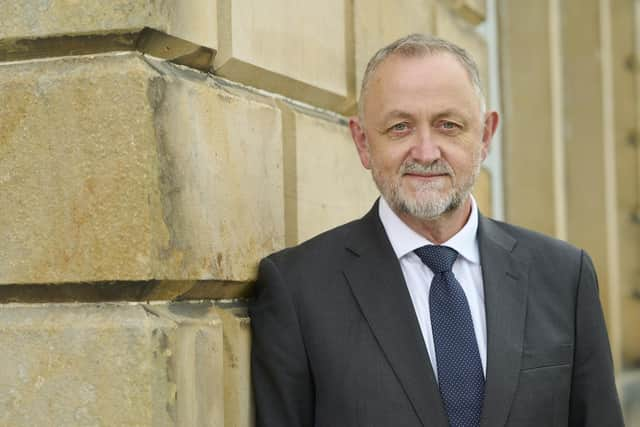Education can provide a real connective spark – Professor Todd Walker comment
The region is remote and rugged, but right across it, in every corner, there are opportunities for communities to thrive. From ScotWind to green hydrogen, the prospects for growth are bright as we emerge from the issues that have challenged everyone.
But what needs to be done to ensure these prospects are released and how best can the transformative ability of education be used?
Advertisement
Hide AdAdvertisement
Hide AdThe University of Highlands and Islands (UHI) has a key role to play. UHI is more than a college and more than a university. We are different. We are part of a new breed of tertiary institutions, offering flexible and supported learning from access level to PhD.
UHI has a combined income of £135 million, with almost 3,100 members of staff, and a student population of more than 38,600 across further and higher education courses. As a large and dispersed organisation, we have a significant economic footprint in the region.
In 2019, UHI generated £560m gross value added (GVA) and supported 6,200 jobs throughout the economy in the Highlands and Islands, Moray and Perthshire. Across Scotland, the UHI partnership supports £653m GVA and 7,200 jobs.
The 12,360 people who graduated from UHI in 2019 will generate an estimated lifetime earnings premium of £324m GVA in the economy of the Highlands and Islands, Moray and Perthshire.


We have a large physical presence in the region and we are a major employer paying staff, spending money on goods, services and capital projects, as well as attracting students and visitors into the area. This activity means we contribute £560m to the Highlands and Islands, Moray and Perthshire economies every year, and support 6,200 jobs.
But our role is much more than that. The responsibility for us as a regional strategic body is to lead the discussion with community and government, something I have described as “the new social contract”.
UHI is embedded in the communities we serve, we respect them, value them, and want to see them grow and be sustainable. It is incumbent on us to do all we can to help them flourish, as each has a natural resource.
Pivotal
Universities and colleges have existed for hundreds of years in various forms and iterations. They are places to make sense of the world and to shape it.
Advertisement
Hide AdAdvertisement
Hide AdAs such, it would be a mistake to see universities as static and unchanging. Indeed, history reflects that during major economic upheaval, universities have remade and reformed themselves, often responding to current circumstance.
UHI is different because we teach across a broad qualification framework, from apprenticeships to PHDs, students come to us and enrol for a purpose. There are institutions that are designed for people to come to them, but we are the opposite and that is our strength. Our students should feel there is something relevant in their local communities.
UHI has always been an organisation that has embraced evolution and has a “can do” attitude. We celebrate the fact that we are different, and see our DNA as being part of our region, which covers Highlands and Islands as well as Moray and Perthshire.
The connection to the communities and the notion that nobody should have to leave the area to get an education or a job, or succeed in life, underpins everything that we do.
Role
UHI has always thought carefully about being in the position between secondary school education and a job. To do this, our course profile has to be relevant to our communities and culture, and has to be linked with outcomes our graduates want.
We need to review, renew and improve the course curriculum to allow students to study here and work and develop here. Training people in the region and retaining them in the region, that is what will help build communities and transform lives.
That means engaging with the industries that are growing in our operating area, and understanding what they need and providing a connection. There are plenty of examples where upskilling and reskilling has worked and that provides significant ground for optimism.
There are of course challenges. School leavers have the option of going straight into work, there is a significant housing shortage, both for staff and students, and digital and physical connectivity needs to improve. Government is aware of the issues and is working on it – the challenge is how we support these initiatives.
Advertisement
Hide AdAdvertisement
Hide AdFrom an enterprise perspective, we are here to make good use of public funds and grow, we are here to support our business, industries, communities and culture. Again, we have to ask ourselves how our entrepreneurial spirit can support those different groups to achieve more economic and commercial growth.
Success in ten years’ time for UHI would be primarily built around growth – growth in student numbers balanced by growth in communities.
You might be the first in your family to go to college or university, but as a result of that your life is different, and the community in which you live is enriched by that. That is a worthwhile thing for everybody involved to pursue.
Professor Todd Walker is UHI’s principal and vice-chancellor
Comments
Want to join the conversation? Please or to comment on this article.
